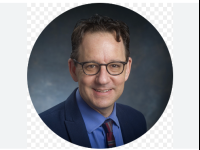Episode 13 - 10/31/22
This is part 4 in our NarxCare/PDMP series. We interview Jacob James Rich. This episode focuses on PDMP harms, law enforcement's access to the PDMP, and whether HIPAA protects patients from PDMP data being shared.
Jacob James Rich is a researcher. Jacob also works as an analyst for Reason Foundation, focusing on healthcare policy. He has written extensively on drug policy topics, such as the consequences of prescription drug monitoring programs (PDMPs) on patient access and overdose mortality. Jacob is currently researching racial disparities in drug enforcement with CWRU Graduate Student Council's DEI Award.
Brief: https://reason.org/policy-study/prescription-drug-monitoring-programs-effects-on-opioid-prescribing-and-drug-overdose-mortality/
Reason bio page: https://reason.org/author/jacob-rich/
Twitter: @jacobjamesrich
Attorney Jennifer Oliva's article on PDMP and law enforcement in Duke Law Review - Prescription Drug Policing: The Right to Health Information privacy Pre- and post-Carpenter
Links to topics mentioned:
Links to podcasts or presentations in their entirety that were shared in this podcast -
- NASCA - "State PDMP vs National PDMP"
- Cover 2 Resources - "Strike Force Stops Flow of Illicit Opioids"
- Cato Institute - "Patients, Privacy, and PDMP's"
- NPR show 1A - "Against the Pain - The Opioid Crisis and Medication Access"
Kate Nicholson's bio - "Kate Nicholson, JD, is a civil rights attorney and a nationally-recognized expert on the Americans with Disabilities Act (ADA). She served in the U.S. Department of Justice for 18 years, where she litigated and managed cases, coordinated federal disability policy, and drafted the current ADA regulations." - Executive Director at NPAC
Kate developed intractable pain after a surgical mishap left her unable to sit or stand and severely limited in walking for many years. She gave the TEDx talk, What We Lose When We Undertreat Pain, and speaks widely at universities and conferences and to medical groups."
Disclaimer: The information provided to you in this podcast is not to be considered medical or legal advice.



















